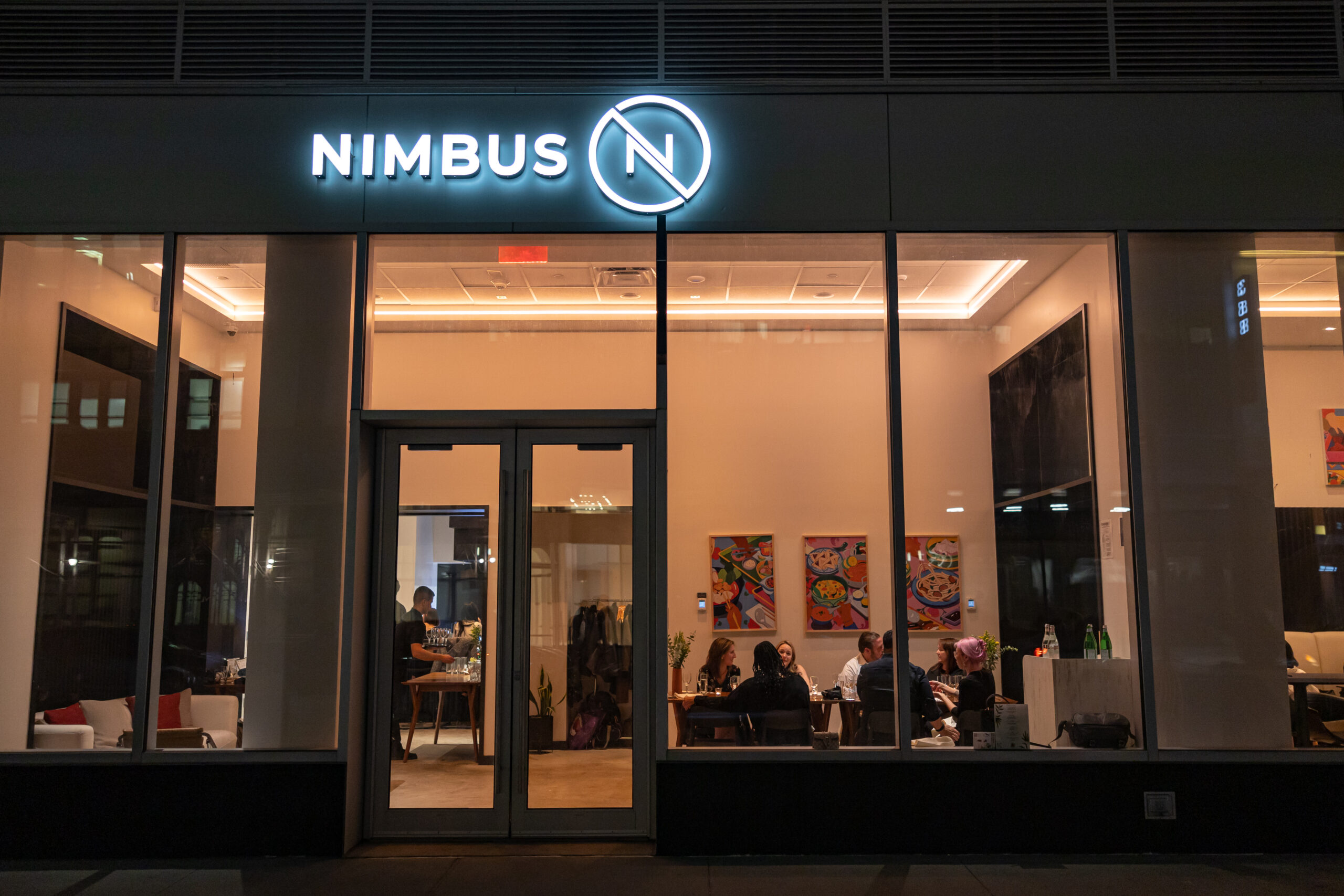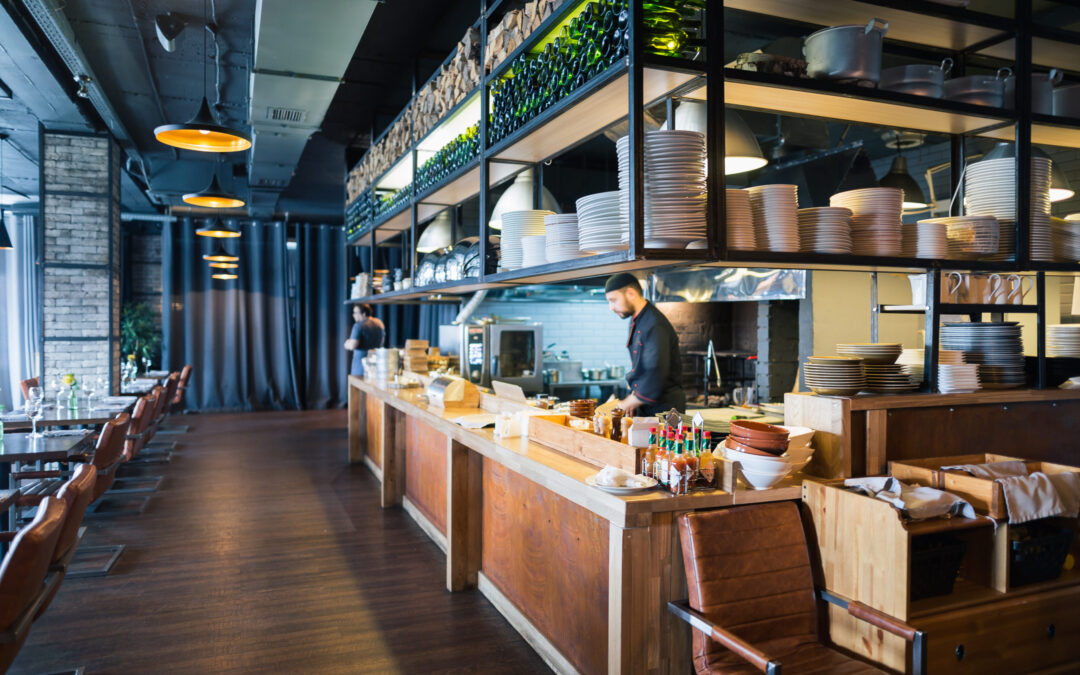Ghost kitchens flourished during the pandemic as they capitalized on the increased demand for doorstep delivery when restaurants had to shutter dining rooms.
Major national chains such as Wendy’s, Burger King, Popeyes, and Chick-fil-A enthusiastically embraced the ghost kitchen trend. Virtual brands also jumped on the bandwagon. These brands saw the potential for boosting delivery revenue without the need to invest millions in constructing brick-and-mortar stores.
But the sector is now experiencing challenges with leading ghost kitchen companies such as Reef and Kitchen United downsizing or shutting down operations in the US. Even CloudKitchens, founded by Travis Kalanick and boasting a network of 400 facilities, has struggled to maintain occupancy in its kitchen spaces.
Amidst this, a few startups such as Franklin Junction have thrived.
Founded in 2020, the Atlanta-based company has stood out by challenging the traditional landlord-tenant model in the ghost kitchen space.
While other ghost kitchens have pivoted several times, Franklin Junction has remained consistent with its approach. The company facilitates partnerships between chains with available kitchen space and restaurant brands seeking to expand their delivery services.
This Host kitchen model enables brands like Denny’s and Frisch’s Big Boy to increase revenue by preparing delivery-only meals from their underutilized kitchens. For instance, both Frisch’s and Denny’s serve as Host kitchens for Nathan’s Famous.
CEO Rishi Nigam said Franklin Junction’s model ensures mutually beneficial, capital-free revenue growth for each restaurant partner. Nigam, who seldom grants media interviews, shared his candid assessment of the challenges faced by the ghost kitchen industry with Food on Demand.
“I just refer to it as the WeWork of restaurants,” he said, referencing the meteoric rise and fall of the co-working space startup co-founded by Adam Neumann.
The traditional ghost kitchen model is too hard to scale
From the very beginning, Nigam said the traditional landlord-tenant model was “never going to work,” he said.
“This is not a model that scales,” he said. “The idea to go out and blitz scale this and spend a lot of capital on building and developing and acquiring kitchens and repurposing them was a flop.”
When chains and virtual brands couldn’t generate enough sales to cover expenses such as rent, labor, and third-party delivery fees, they bailed from the ghost kitchen space. Kitchen United shut down its virtual food halls, and Reef witnessed brands like Wendy’s and Burger King scale back or leave its food trailers due to insufficient sales.

Franklin Junction CEO Rishi Nigam
“And I think that’s the correction we’re seeing now,” Nigam said.
But, there’s no course correction at Franklin Junction, and other startups that are experiencing growth such as Nimbus and OOMI.
At Franklin Junction, the company has relied on slow and steady growth. Its model also focuses on working with well-known brands such as Nathan’s Famous, Hooters, Denny’s, David Chang’s Fuku, Applebee’s, IHOP, Dickey’s Barbecue Pit, Sajj Mediterranean and Milk.
Brand partners enjoy incremental revenue, and profits from the start, Nigam said.
Franklin Junction is also involved in the training. For example, the company has licensing rights to grow brands like Nathan’s Famous. They train Host kitchen operators like Denny’s to make menu items correctly, ensuring quality control.
In this scenario, everyone wins, Nigam said.
“In our case, neither the brand nor the Host kitchen is spending a single dollar of capital expense,” he said. “We’re using all existing assets and we’re just repurposing them for more revenue. So in our case, there really is no hurdle. You go live and within dollar one, everybody’s making profit. The host is making profit. The brand is making profit. Franklin Junction is making a profit.”
Amid the downturn in the ghost kitchen market, Cypress Growth Capital made a $5.3 million investment in Franklin Junction last month.
“They are creating value for the entire ecosystem of dining concepts, restaurant operators, delivery services, and consumers,” Cypress Partner Vincent Hsieh said in a statement.
Matching brands using AI
Franklin Junction has approximately 3,000 Host kitchens under contract. Of those, several hundred are active with each restaurant, on average, producing delivery-only meals from about three other brands. Host kitchen brands include Frisch’s Big Boy, Denny’s, Nora Asian Fresh, and Olga’s Kitchen.
Unlike other ghost kitchens, Franklin Junction acts like a broker between Host kitchen restaurants and brands looking to expand their delivery footprint inside dark kitchens.
And, these Match.com-style marriages are all AI-driven.
Franklin Junction utilizes AI to pair Host kitchens such as Denny’s with compatible brands, considering factors like kitchen equipment and supply chain. The optimal match involves brands whose ingredients complement the Host kitchen’s offerings.
A Host kitchen, for example, will typically have to buy about five to seven additional ingredients per concept. So, the investment is minimal.
“We’re not trying to set up salad chains in a sushi shop,” Nigam said.
That’s attractive to operators like Joon Park.

&Market kitchens will have 5,000 square feet of space designed for brick-and-mortar and virtual concepts for pickup and delivery.
Last year, Park was running a string of virtual brands from a ghost kitchen in Washington, D.C.
But, a handful of them got booted from Uber Eats after the delivery company began weeding out delivery-only brands that were offering duplicate menus from restaurants at the same address. The crackdown cost Park about $7,000 a month.
So, now he’s turning to Franklin Junction as he prepares to open a co-working facility called &market kitchens in Washington, D.C. The 24,000-square foot facility will have 5,000 square feet of space designed for brick-and-mortar and virtual concepts that sell Asian cuisine available for pickup and delivery.
He intends to launch the hybrid food hall in November, where customers can order meals online or through kiosks. However, he acknowledges the need for additional revenue to make the model successful.
That’s where Franklin Junction comes into play. Park plans to tap Franklin Junction’s licensed brands to generate extra revenue.
“The fulfillment deal with Franklin Junction is one of the stepping stones for us to learn how to expand our menu,” he said. “The economics work.”
Nimbus expands its ‘co-cooking’ facilities beyond New York City
Park’s &Market concept resembles New York-based Nimbus, founded in 2019 by Camilla Opperman Morse.
Nimbus operates a shared kitchen, known as a “co-cooking” facility. It is designed for merchants who need the kitchen space for catering, meal-prep, and delivery. These kitchens are available for rent on a monthly or hourly basis.
“There’s a really wide range of use cases beyond what I think most people think of when they hear the term ghost kitchen, and that’s really allowed us to target a wider potential customer base,” Opperman Morse told Food on Demand.

Nimbus operates a shared kitchen, known as a “co-cooking” facility.
Being less beholden to the fluctuations of the on-demand delivery space has allowed Nimbus to grow while other shared kitchen models have struggled. Recently, Nimbus expanded its presence by acquiring Kitchen United’s locations in New York. Additionally, the company opened its fifth facility, marking its first venture outside of the Big Apple, in Chicago earlier this month.
Unlike traditional ghost kitchens, each Nimbus facility offers front-of-house dine-in space for walk-in customers.
“We have the physical dining areas for the customers. We have event programming that drives foot traffic to our spaces,” said Opperman Morse, adding that Nimbus is currently renovating the old Kitchen United spaces by adding private event spaces.
By bringing “hospitality back into the equation,” Opperman Morse said customers have a better experience.
“When you think about it – a ghost kitchen or a dark kitchen – even the names are kind of scary and elusive and not particularly transparent,” she said.
And, most importantly, “every location is profitable and has been from launch,” Opperman Morse said.
As for Nigam, he’s rooting for these small, hybrid food halls. But, he emphasizes that flawless execution is crucial to be successful.
That’s why Franklin Junction works with experienced operators. “There’s something to be said for that.”
Nancy Luna is a contributing writer for Food on Demand. She can be reached at [email protected]


